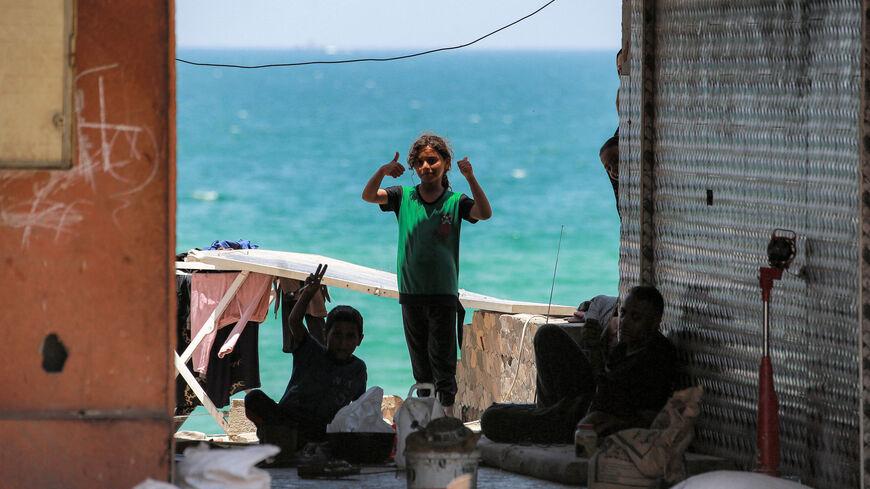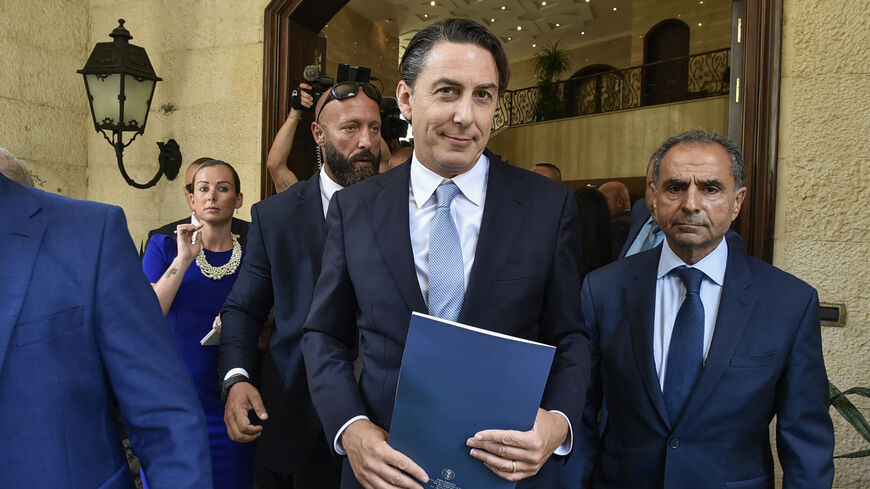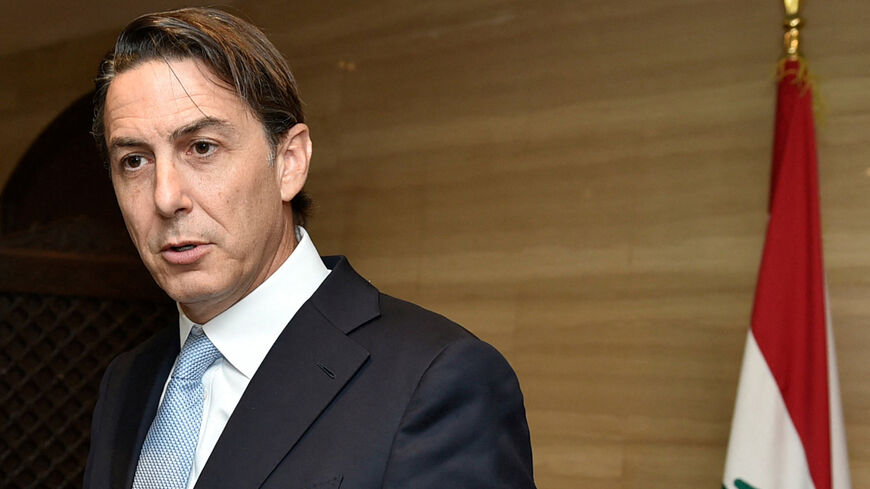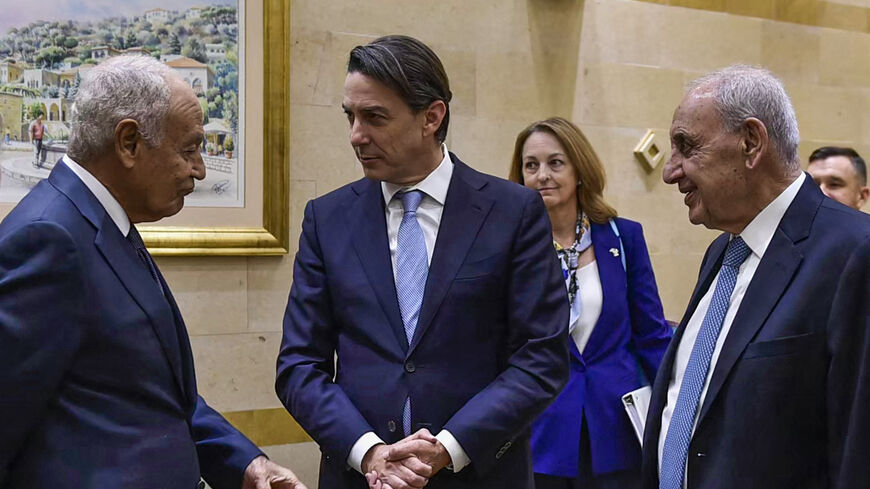Israeli war cabinet calls Lebanon meeting as Hezbollah tension spikes
Israel's war cabinet is set to convene to discuss the escalation of violence on the border with Lebanon.
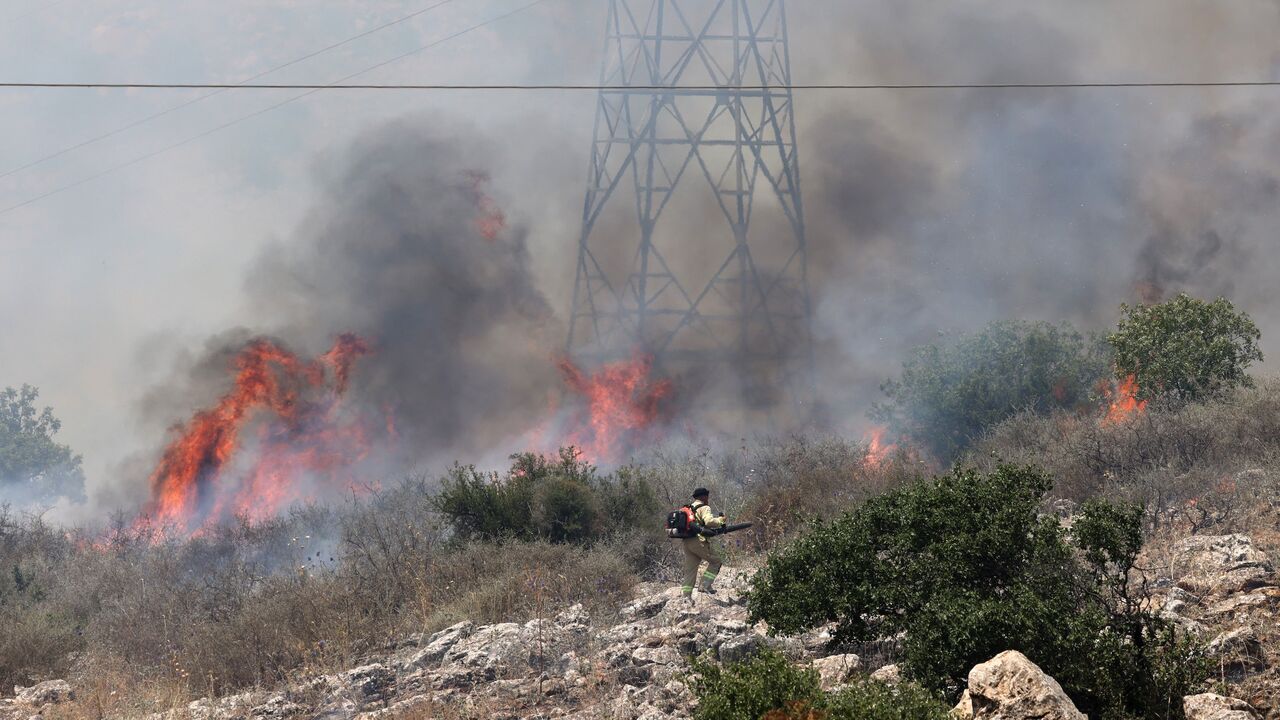
Israel’s war cabinet is set to discuss Tuesday evening the escalation on the border with Lebanon after rocket fire caused dozens of fires in the north of Israel.
Israeli firefighters continued efforts to control dozens of bush fires Tuesday afternoon. After they gained control of many of the fires on Monday, three more broke out Tuesday morning in the Biria forest near Safed and in the Upper Galilea villages Margaliot and Keren Naftali. Israeli fire-fighting services reported 96 fires detected since Monday morning.
National Security Minister Itamar Ben-Gvir went to the city of Kiryat Shmona, near the border with Lebanon, to inspect the situation on Tuesday. "It is unacceptable that a region in our country is targeted while Lebanon remains quiet. We must burn all of Hezbollah outposts. Destroy them. War," he said. Ben-Gvir faced criticism Monday night for not leaving for the north immediately after the fires started breaking out. Ben-Gvir said he had stayed in Jerusalem for an event commemorating the Oct. 7 victims.
On Tuesday morning, war cabinet members Benny Gantz and Gadi Eisenkot spoke with representatives of the towns and villages of the north of Israel. After the discussion, Gantz asked Prime Minister Benjamin Netanyahu to convene a meeting of the war cabinet Tuesday evening to discuss the escalation in the north.
Israeli military spokesperson Daniel Hagari said Tuesday that military forces are participating in efforts to control the fires in the north and added that since the beginning of the war, Israel's 869 intelligence unit, which operates in the Lebanon-border area, has assisted in the elimination of more than 100 Hezbollah operatives.
As the Israel-Lebanon front heats up, Lebanon has reportedly received a series of diplomatic messages from Western and Arab parties about an imminent Israeli strike, Lebanese daily Al-Akhbar, which is close to Hezbollah, reported on Tuesday.
“Most international envoys conveyed their concerns over the seriousness of the Israeli threat, but the most notable message came from the British side, which specified a mid-June date for the Israeli strike,” Al-Akhbar quoted unidentified “prominent sources” as saying.
According to the same sources, Britain advised Beirut to “make the necessary provisions for the war” of an unknown scope and duration.
Hezbollah began firing rockets and drones at northern Israel one day after Hamas launched its surprise cross-border assault on southern Israel Oct. 7. The Iranian-backed group has said it was acting in solidarity with the Palestinian people in the Gaza Strip.
Lebanon’s parliament speaker, Nabih Berri, who is also a Hezbollah ally, reportedly received a call from US special envoy Amos Hochstein last week before US President Joe Biden announced an Israeli proposal for a Gaza cease-fire and hostage deal last Friday.
Al-Akhbar’s sources said Hochstein, who is leading the indirect negotiations between Lebanon and Israel to de-escalate the situation on the border, told Berri that talks to resolve the differences between the conflicting parties will begin as soon as a cease-fire is reached in Gaza.
However, according to Al-Akhbar's sources, Hochstein’s optimism on the resumption of talks appears to have faded due to the Israeli government’s handling of Biden’s proposal.
The report read that Qatar relayed its concerns over Israel’s intentions toward Lebanon to former Lebanese minister Walid Jumblat during his trip to Doha last month. Qatari officials reportedly told him that Israel does not want a cease-fire in Gaza despite US efforts to reach one.
Further fueling concerns of a wider conflict, Arab parties following the ongoing Gaza negotiations informed Beirut that Israel can no longer withstand the pressure on its northern front, according to Al-Akhbar. “There are many requests from the [Israeli] army and the political level for the necessity of carrying out major deterrent action against Hezbollah and the Lebanese government,” the paper said.
The exchanges of fire between Israel and Hezbollah had initially been limited to the border areas but has expanded in recent weeks, with both sides striking deeper into their respective territories.
On Tuesday, an alleged Israeli drone strike hit a car in the West Bekaa region in the east, according to Lebanese media. Saudi-owned Al-Arabiya reported two people were hit in the strike, including a Hezbollah member. It remains unclear if there were any casualties.
At least 453 people have been killed in Lebanon since the hostilities began Oct. 8, according to an AFP tally that included more than 300 Hezbollah fighters but also civilians and journalists.
Meanwhile, on the Israeli side, 14 soldiers and 11 civilians have been killed, according to the army.



